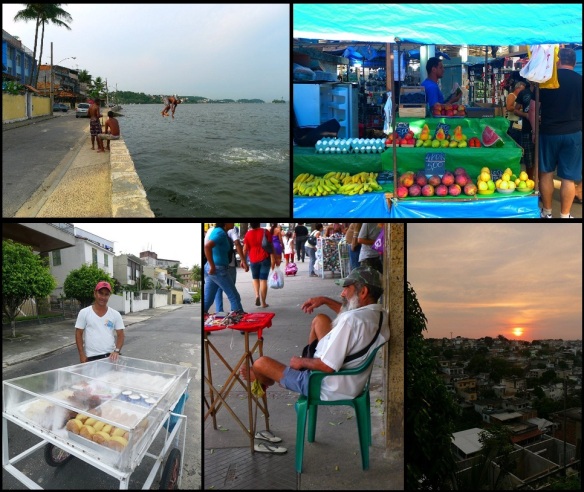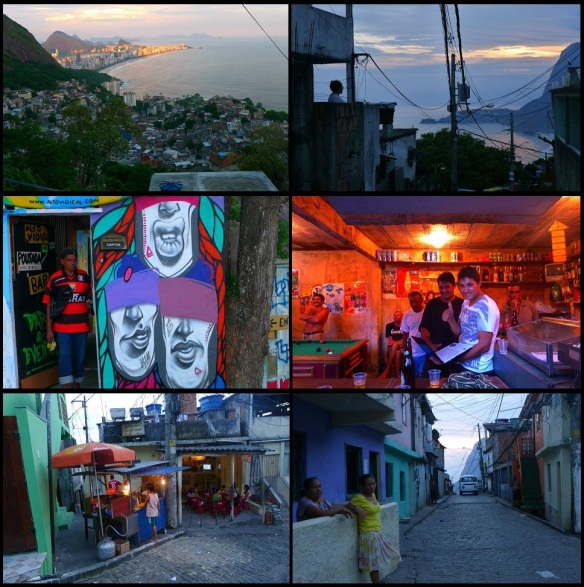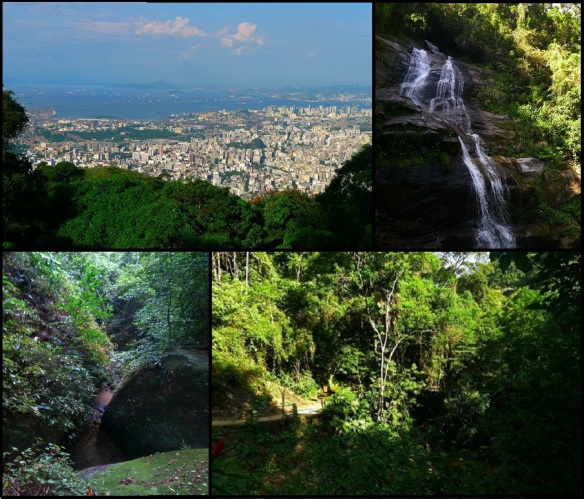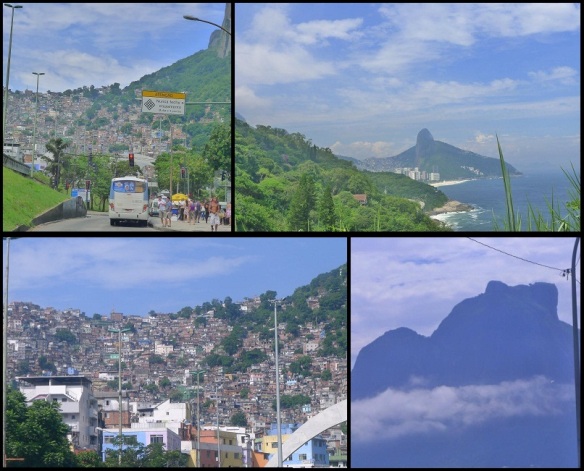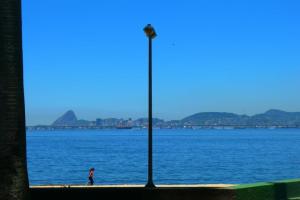Getting to a city tired and sleepy, feet dragging, grabbing a morning chai, no points of reference… Eyes open, bust station, wow! No points of reference, nothing…The eyebrows are heavy and the city is a busy, grey, no contrasting normality. Mysore is moderately frantic, moderately colorful and busy… until a certain extent. Sipping the chai, speaking to my buttons, trying to solve IT problems and such, trying to place myself… Thoughts and time drag, swung by the tedious regular honking of the Indian traffic tradition. That’s when it hit me… The first time was just a whisper. It became a rattle and grew, all bold and intense. It became noise and defined itself into rhythm. This raw, untamed rhythm that invaded the once monotone arteries. Then it gathered with color. I remember jumping outside and spiked by that spectacle in front of me, I just dove… There was a crowd outside, chanting and dancing frantically, like hyperactives in New Orleans. Looking around me, there were colorful people in drag, clumsy giant puppets, that grooved in a ruminating, slow groove and other shy voyeurs… Took my camera, and dove. I bring you the result. A stranger walks into town and the city flash mobs him. That’s how I felt. I didn’t resist, went with the flow and danced the steps the drums taught me. It was the Maharaja’s birthday, they told me. Well, congratulations Maharaja, I think I’ll just enjoy your surprise…

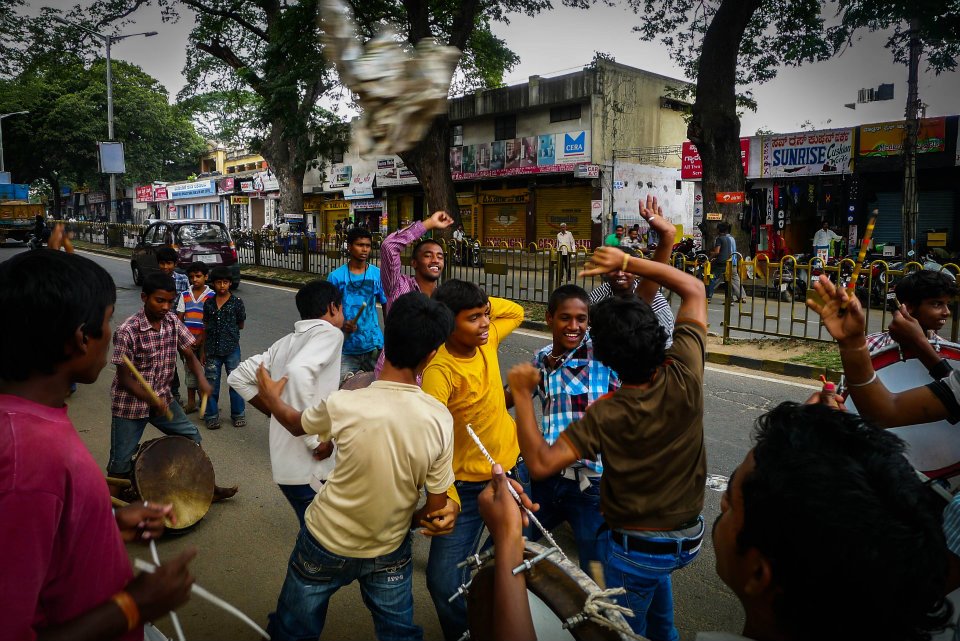
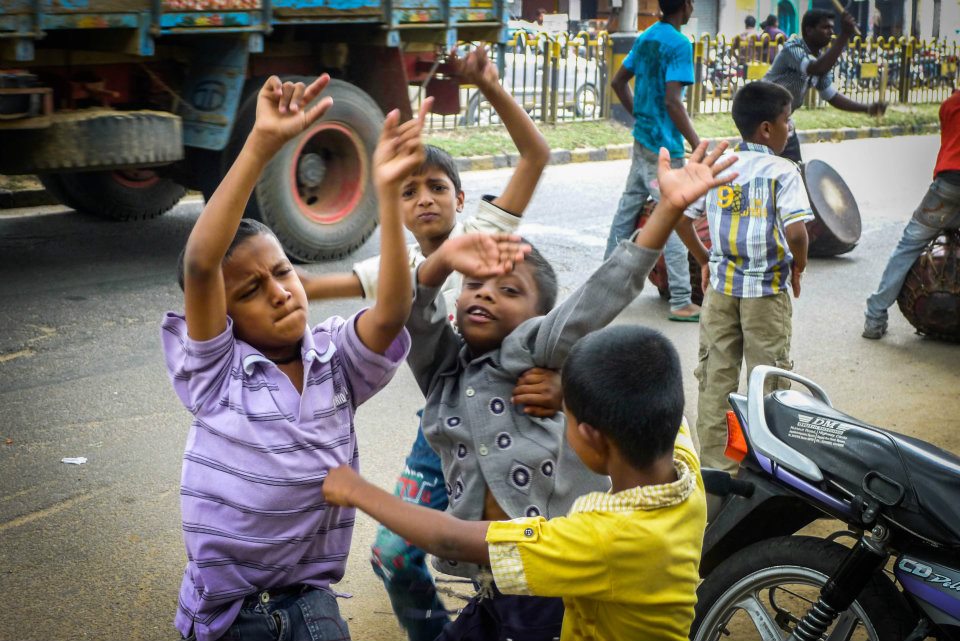


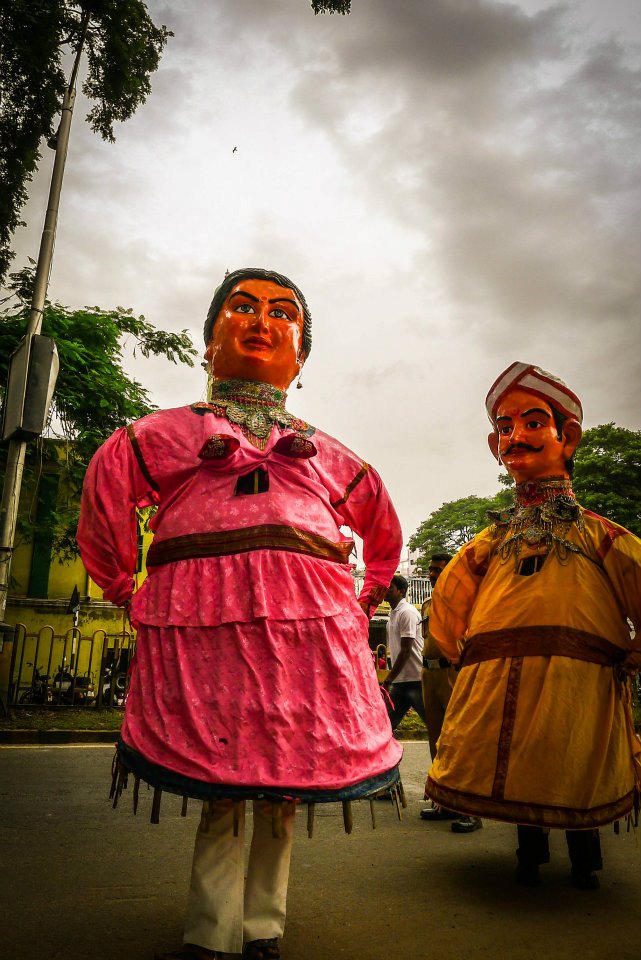
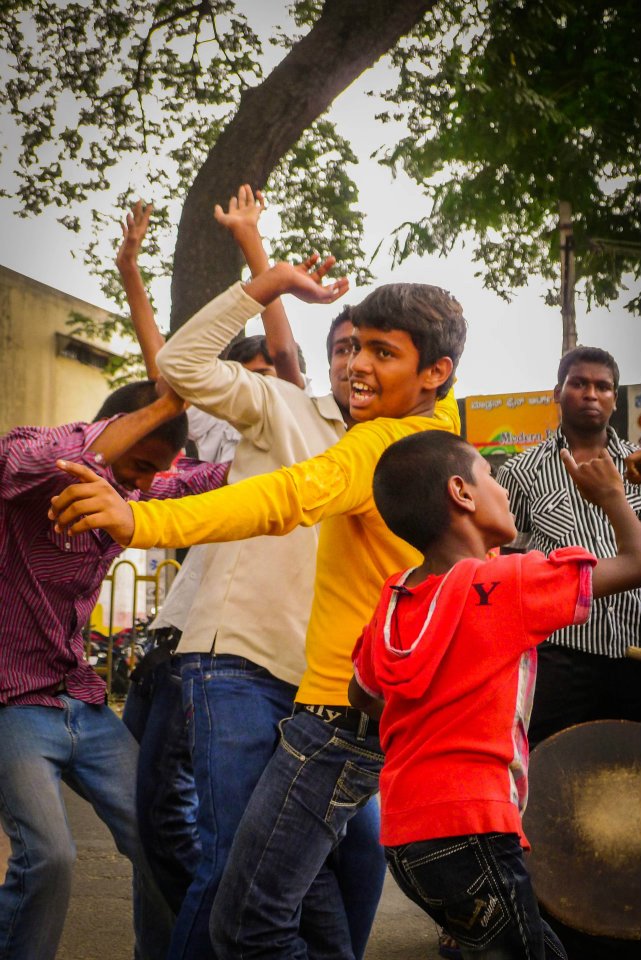
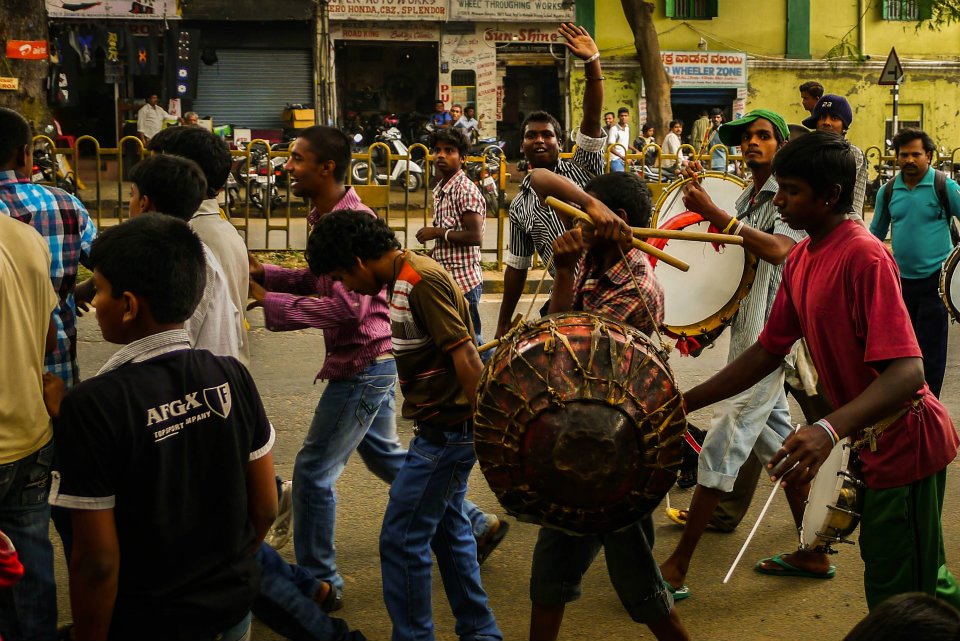
Category Archives: Culture
Searching Temples, Finding the Country
Eighteen Kilometres… Let your feet tell you the way. Such a landscape deserves your thirst. Desert tinted temples, boulders and rocks, a semi desolate aura comes knocking at your eye sight… First impressions, always an eye feeder. Today I scrap the surface, trot the scenery and finding a little bit of the farming and luscious green covered fields. The simplicity of a smile at each corner, the big eyes of curiosity and the equal and respectful wave. In Hampi, if you look for the temples, you end up capturing a fragment of this frank and straightforward reality. I was missing the country already…

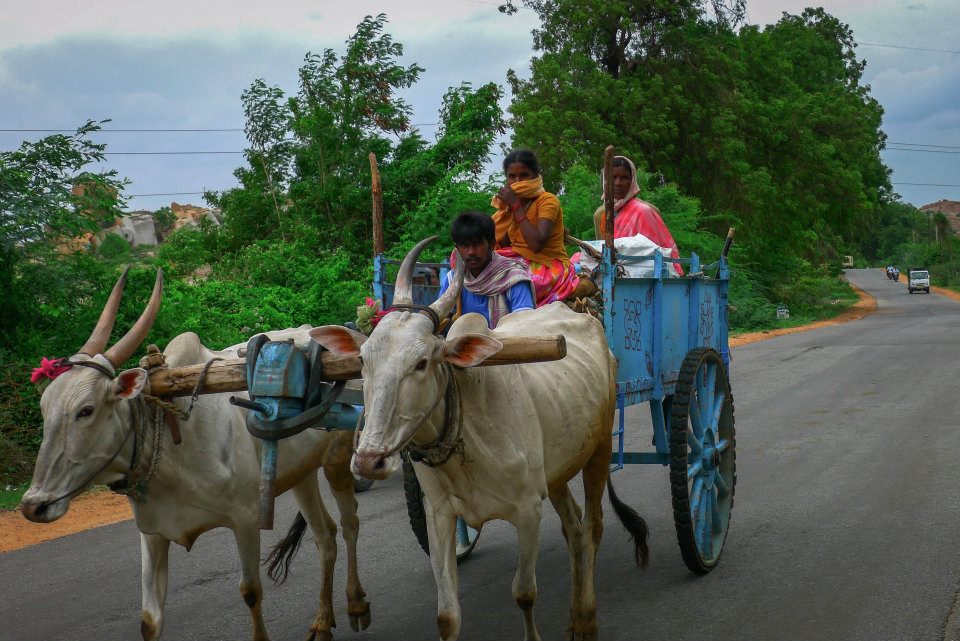

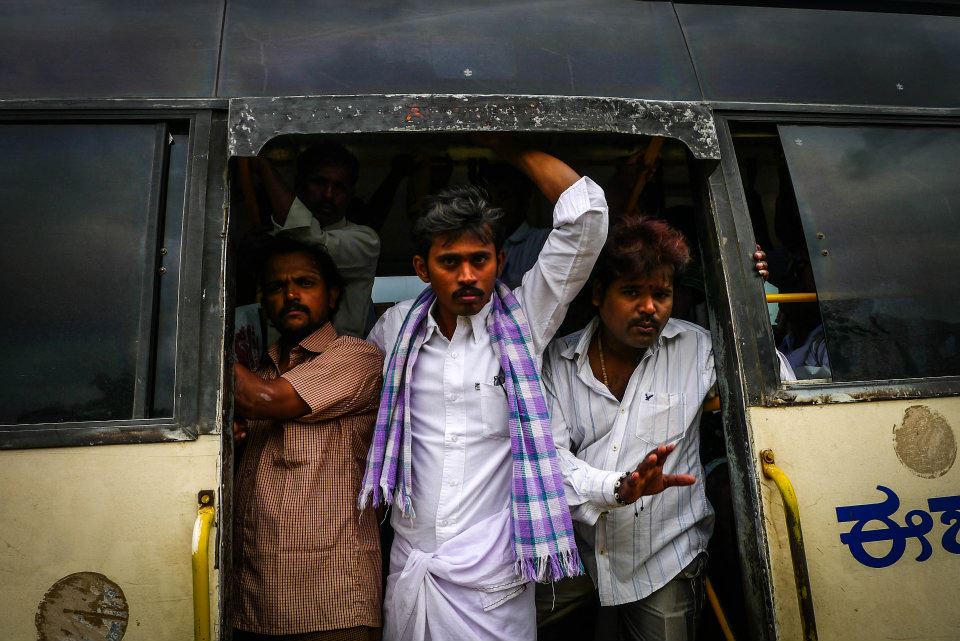

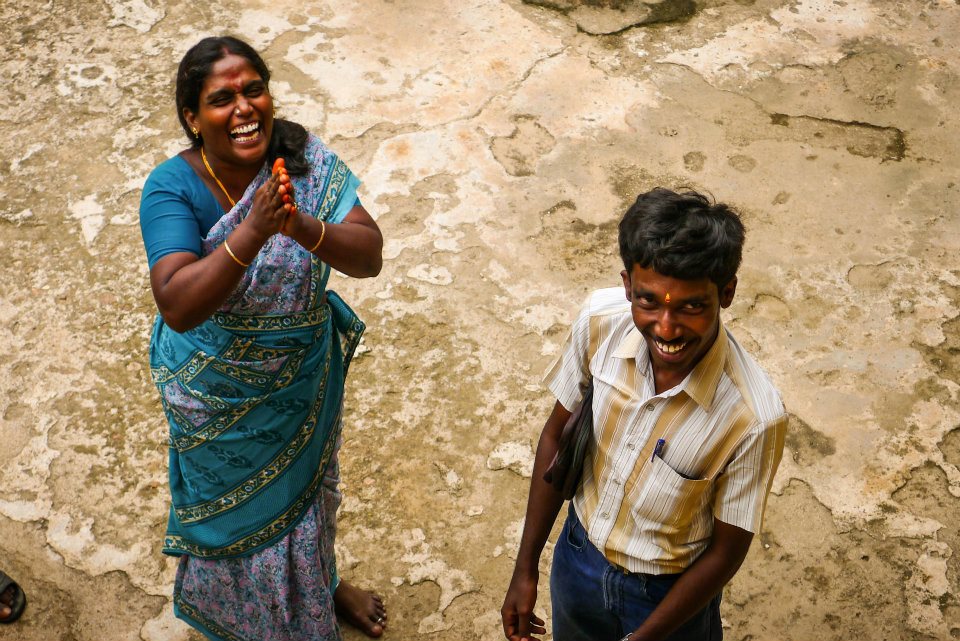

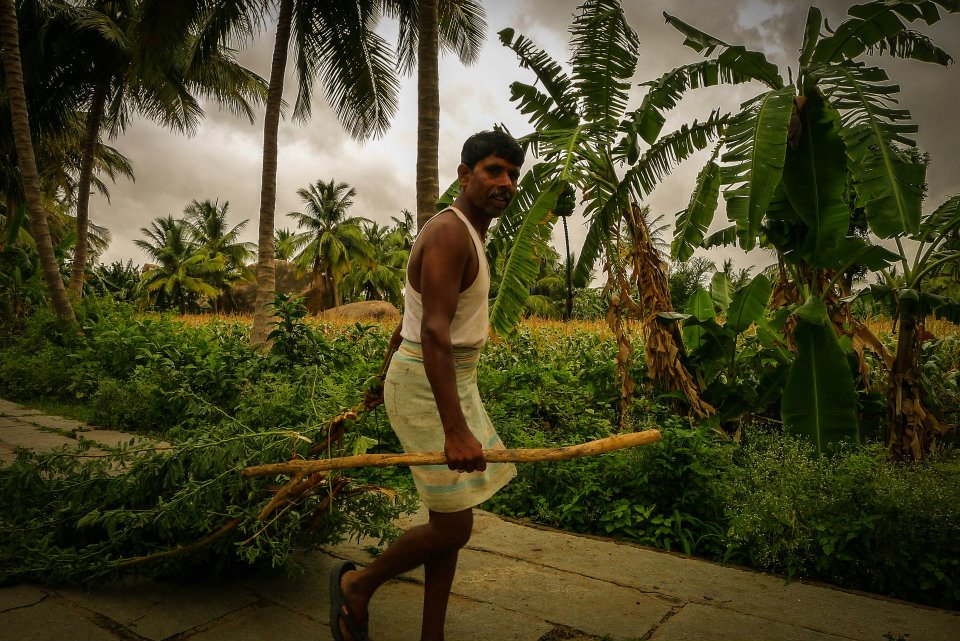




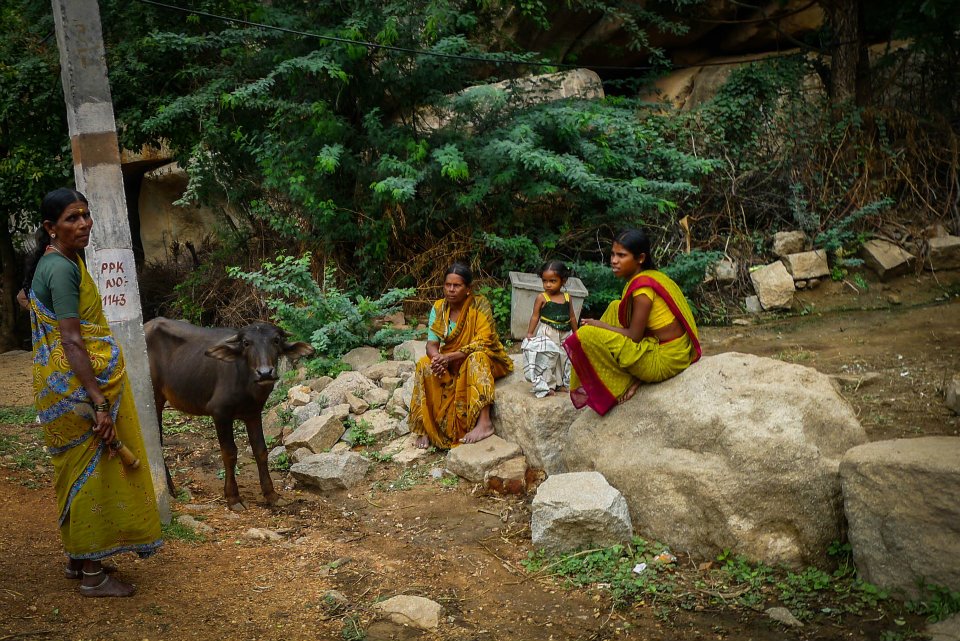


Eerie Hampi: Living the Surreal…
Hampi, Karnataka State. One of the strangest, ghostly towns I’ve ever visited. The town is located on an a World Heritage ruins, with temples and a devotional aura surrounding it. Massive boulders all around complete the scenery, giving it a sense of an ancient, kind of desolate soul. Eerie might be the right word, a total maze of rocks and temples where orientation can be a bit hard. In the centre of the sacred bazaar, people have been occupying the ruins, a situation that was put to an end with demolitions. Despite this, there’s still life, there’s still the busy toiling and every day hard work. How interesting it is, how people live in such an ancient place, in such a devotional one. What I bring you today is the profane, the everyday life of such a place. Framed by amazing natural beauty and holy temples…




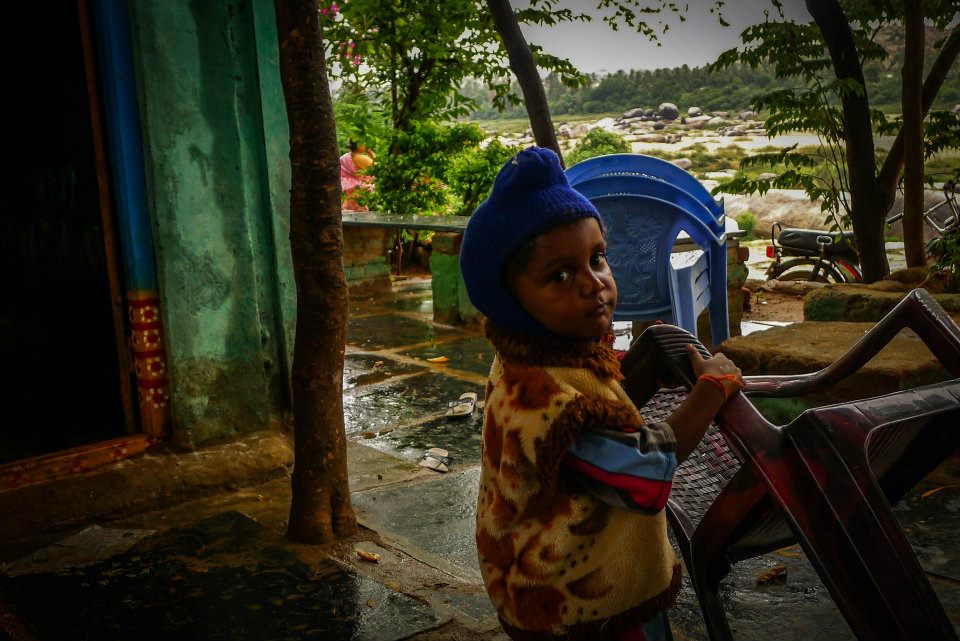







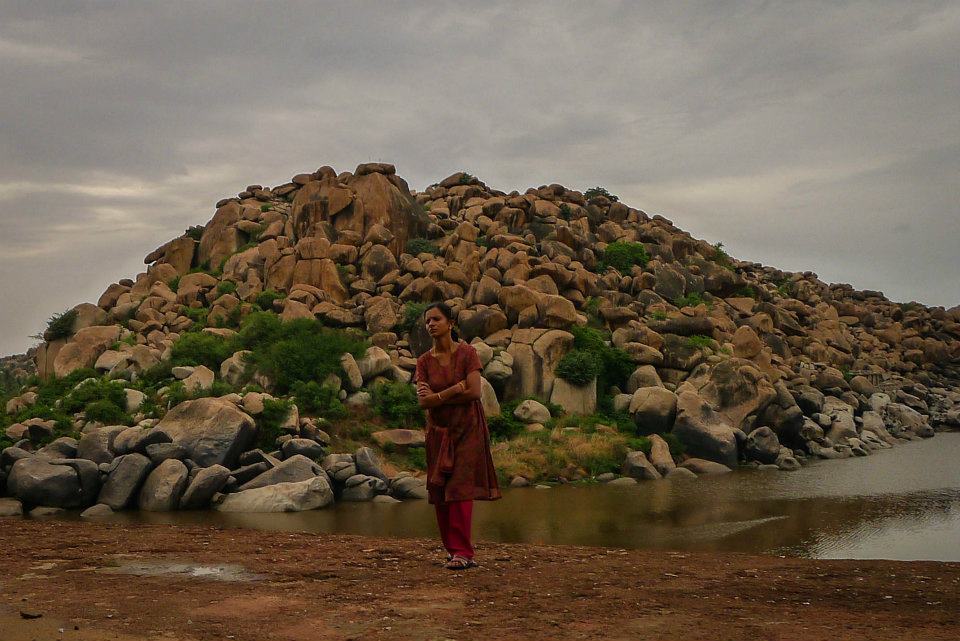

The Scenery Speaks for Itself: Life on an Indian Train
I woke up to an increasingly flooding Goan morning. Too sleepy, got to the train station being no more than a faint projection of myself… Plan: sleep the whole 8 hours into Hospet, Karnataka. That was a good plan. What I wasn’t counting on… The beautiful landscape that jumped into the train windows, invading my horizons… Impossible to ignore. Green covered ridges, as far as the eye can see, misty peaks and a dense jungle that sharps the spears of your imagination. At the same time, this was one of the liveliest train rides I’ve ever had. From the passengers, to the creative cries of the food salesman, to the random people that came into the train curious to see what was going on… All of them looked especially touched by the world flashing by… Such great vibes…
Suddenly, the landscape totally changes, gets drier, flooded with yellow tones and looks like Monty Python’s 16 ton has landed on it. A different kind of beauty, with the sky stealing the scene a little bit.
Take the journey, open your eyes… you can sleep when you’re dead, right?


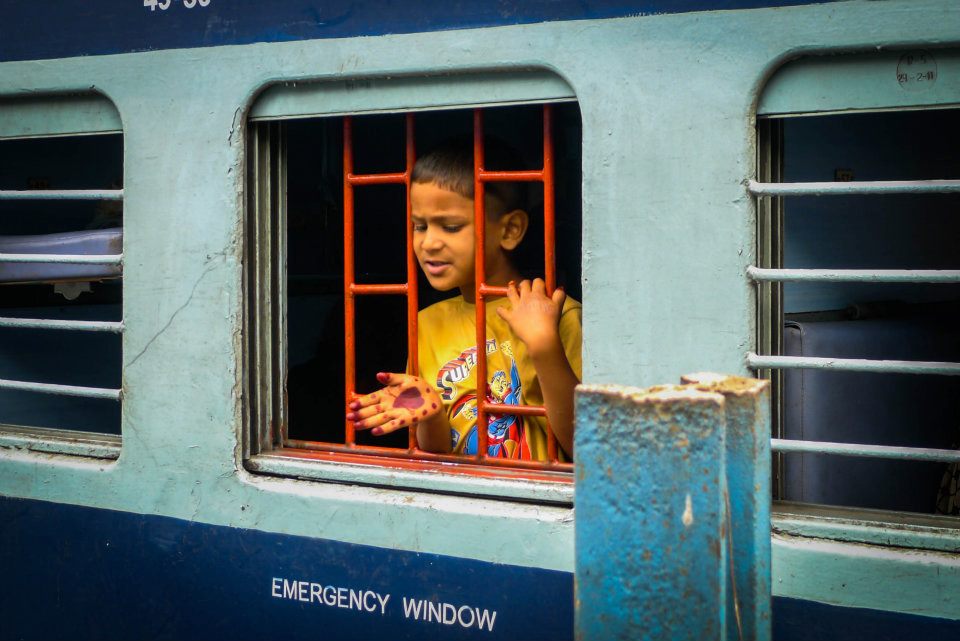
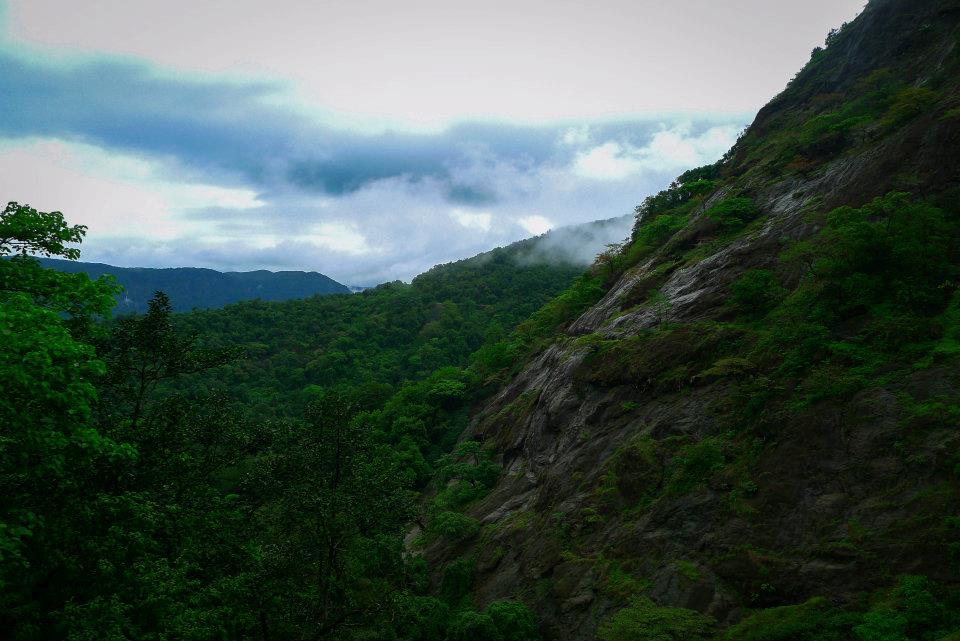

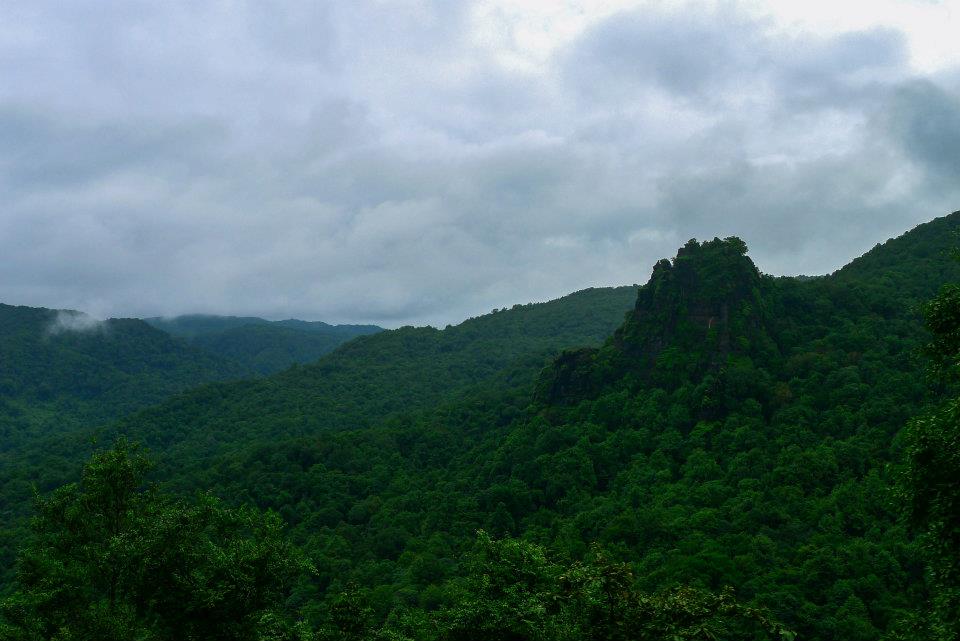
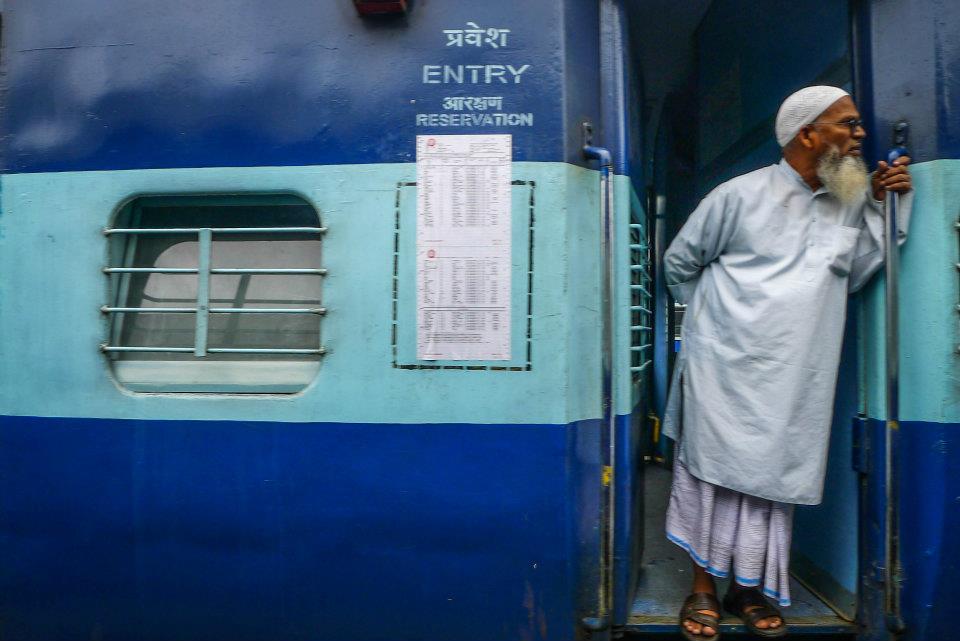



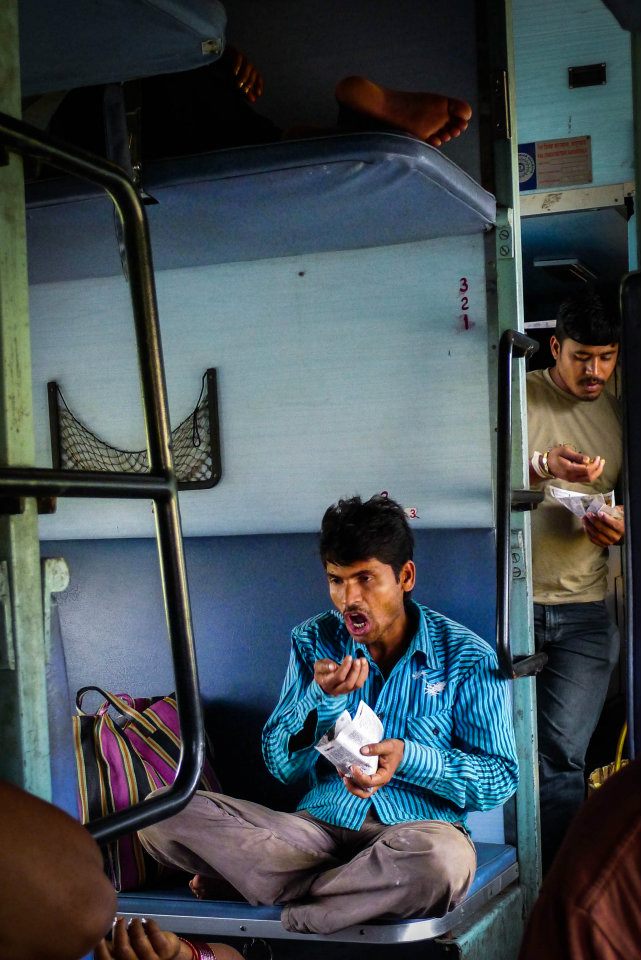
Goa Miscellaneous Snaps: My Way to Say Goodbye…
Here’s a retrospective of my few last days in Goa… Choppy sea, gray skies, portuguese heritage and lovely people that crossed my paths. I’m sitting at a cafe, eating my chicken Xacuti writing these lines… How different is Goa from what I’ve seen in India so far… That shows how diverse this country really is.. like no other. Heading South once again, facing monsoon and living this special time for all Indian people… Not really afraid to get wet…












Panaji Takes Over the Streets: A different Sunday
I always wrote here how I love Sundays. And how I love tasting them in a different way. Either a Macau market, or a Melbourne park, Sunday is just a different day. How different? Well, today I woke up with the street noise at 9am. Normally the honks would’ve accomplished in making me open my right eye, but today what startled me was the absence of honking and car noise. What woke me up was the excitement in people’s voices, someone drumming in the distance and a girl singing right underneath my window. I look outside and what I see is not the same bustling road of yesterday. A colorful moving pattern floods it… People everywhere, of all ages claiming the street to themselves. It’s Sunday, no one works, so… why not? “Hey Mrs. let that little girl within come out and play! Hey Grandpa, put on your colorful shirt, yes the crazy hawaiian or Aztec one and grab your racket!” And that’s how I spent my Sunday morning, playing football with the kids, observing a lively cricket match and watching a street theatre play…












How the Blind Opened my Eyes
In Cambodia I ponder the concept of fulfillment and what is actually needed for people to be happy. I visit a country with a harsh history and with people who have borne a lot. Still, I leave with positive thoughts and the realization that happiness is more than what meets the eye.
I come to Cambodia through the back door. After a colorfully agitated passport control, I walk from Thailand into Cambodia, crossing a national border on foot. To me, it feels like a symbol of the traveling nomadic wanderer. To laugh at a national border and just walk across it like a child leaps over the skipping rope. Yes, the lonely rambler’s wishful thinking, but sometimes it’s all you got.
The Cambodia Koh Kong border post is one of the most run down places of its kind I’ve ever seen. To me, it seems to be nothing more than a trading place for passport stamps. An impression that is not exactly proven wrong when the immigration officer asks me for help filling out her football betting slip… Smiling, I just fill out the whole thing for her. I have no idea who’s going to win the Basel vs Zurich match, but I just follow my hunch. She hands me back my stamped passport, saying: “Thank you, sir! Thank you! You really know your football!” Still smiling, I get out, my eyes adjusting to the blinding brightness. A short man with a funny mustache approaches me. His English is perfect and his persuasion skills quite admirable. He convinces me to hire his services, driving the whole 450 kilometers to Phnom Penh. My only condition: no highways, no big towns. I want to see the real Cambodia and stop in villages I would have never dreamed existed.
That first glimpse of the country gives me exactly the insight I had hoped for. Places where time flows slowly, structured only by the cultivation of rice and the toil of the land. Miles and miles of greenery, and bumpy roads, interrupted here and there by lazy cows that insist on blocking the path. What also strikes me is the simplicity of the people. Straight forward and welcoming, despite their obvious lack of means. My thoughts take me to the historical context of the country. A determination to build a new hope seems to be reigning in everybody’s smile. A history of violence that Cambodians want to put behind them. It is a story of hope that I bring you here today.
 In Phnom Penh, I ramble around, trying to find a very special massage place. After getting lost a couple of times, I see a sign that says: “Seeing Hands – Massage by blind people.” I enter a simply furnished open room, with shiatsu massage technique posters and pictures of the blind masseuses, and am greeted by the receptionist, Mr. Sovann. I tell him why I’m there and he decides to tell me a bit of the place’s story. It was founded in 1999, a few years after the fall of the Khmer Rouge regime. As Mr. Sovann tells me, “one of the main problems after the regime fell was the amount of people left disabled, either due to land mines or crime on the streets.” Apparently, blindness especially was affecting a great part of the population. “Sometimes robbers threw battery acid to people’s faces.” His English is not perfect, and I sense that he hesitates to speak of certain matters, but I manage to understand that Seeing Hands is based on the principle that “blind people can see with their hands.“ Curious now, I decide to try out the massage. After all, it will be my first one in Asia. And you have to get one, while you’re here, I guess.
In Phnom Penh, I ramble around, trying to find a very special massage place. After getting lost a couple of times, I see a sign that says: “Seeing Hands – Massage by blind people.” I enter a simply furnished open room, with shiatsu massage technique posters and pictures of the blind masseuses, and am greeted by the receptionist, Mr. Sovann. I tell him why I’m there and he decides to tell me a bit of the place’s story. It was founded in 1999, a few years after the fall of the Khmer Rouge regime. As Mr. Sovann tells me, “one of the main problems after the regime fell was the amount of people left disabled, either due to land mines or crime on the streets.” Apparently, blindness especially was affecting a great part of the population. “Sometimes robbers threw battery acid to people’s faces.” His English is not perfect, and I sense that he hesitates to speak of certain matters, but I manage to understand that Seeing Hands is based on the principle that “blind people can see with their hands.“ Curious now, I decide to try out the massage. After all, it will be my first one in Asia. And you have to get one, while you’re here, I guess.
I walk up some stairs and enter a badly lit room with several massage tables. I’m given a robe into which I change and then I wait, using the time to observe the scene. The masseuses are pounding on their customer’s bodies in a rhythmical, patterned way. There are sighs of either joy or pain (I’m still not sure) cutting through the air. I notice the atmosphere of laid-back, good spirited conversations among the masseuses. While they’re at it, they talk to each other, laughing like they haven’t seen each other for ages. It relaxes me immediately, as if I just walked into a circle of old friends taking me in as one of their own.
I’m still smiling, admiring the scene, when someone taps me on the back. “Massage start, sir.” In front of me is a man in his early thirties. Short hair and broad smile, he introduces himself as Dina, a name I can read on the pocket of his blue shirt.” Lie down sir.” “OK,“ I think, „I’m in your hands now, literally.“
As Dina starts pounding my back and stretching my arms all the way to my fingers, I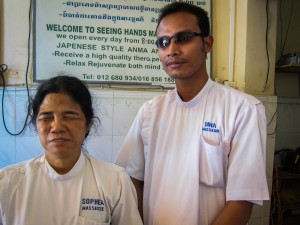 gradually relax. At times, the touch is really strong, and relaxation approaches that thin line that separates it from pain. That kind of sharp little muscular pain that leaves you powerless and laughing, just as if your were watching Monty Python for the first time and John Cleese were tickling you at the same time. It’s like an army of small, peaceful Gandhis marching up and down my back, my arms and my legs, rendering me helpless, first in pain and immediately after in a plenitude of relaxation. I completely lose track of time, feeling numb and floating, as if Dina were the Houdini playing levitation tricks. His voice, chatting away with his other colleagues, now seems like a distant sound in the mist of my blurry thoughts. When Dina says “Massage over, sir,” I cannot move straight away. He laughs at me, asking: “Good, sir?” I simply smile. I honestly don’t think I’ve ever felt like this, every muscle completely loosened up and every joint tension-free.
gradually relax. At times, the touch is really strong, and relaxation approaches that thin line that separates it from pain. That kind of sharp little muscular pain that leaves you powerless and laughing, just as if your were watching Monty Python for the first time and John Cleese were tickling you at the same time. It’s like an army of small, peaceful Gandhis marching up and down my back, my arms and my legs, rendering me helpless, first in pain and immediately after in a plenitude of relaxation. I completely lose track of time, feeling numb and floating, as if Dina were the Houdini playing levitation tricks. His voice, chatting away with his other colleagues, now seems like a distant sound in the mist of my blurry thoughts. When Dina says “Massage over, sir,” I cannot move straight away. He laughs at me, asking: “Good, sir?” I simply smile. I honestly don’t think I’ve ever felt like this, every muscle completely loosened up and every joint tension-free.
I meet Dina outside the parlor, for a little chat. His colleague Sophea, a middle-aged woman, comes with him to translate. Dina tells me he’s been doing this job for five years already. When I ask him if he likes it, he says that it’s OK, and that what he really likes is music. “My dream is to play the piano, sir. I enjoy massage because it can make money, it can make a living, sir”. He also confides that he’s been learning a bit of music lately, trying to fulfill his dream. Sophea adds that “with this, we don’t have to be on the streets… and streets are hard for a blind person.” They also show curiosity in where I come from, so I tell them about my city. They listen in silence, as if the Castle of Lisbon was taking form in their minds. When we say goodbye, Dina shakes my hand vigorously and says: “I really want to read your write, sir!” Then he bursts into laughter, followed by me and Sophea. Fine irony, Mr. Dina, fine irony indeed! We say our goodbye,s wishing each other all the best, all of us feeling that this has been a remarkable encounter.
Walking away from the parlor, I find myself contemplating the concept of fulfillment . Here is this man, disabled but happy to be making a living. He’s a skilled worker and is rewarded for that. No pity, no commiseration. He is an empowered man, capable of making his own choices in life. If he feels like learning the piano, he does it. It is something quite special, particularly in a place like Cambodia, where you can see people toiling hard to make a living. The secret may well be self-reliance. Helping people help themselves, giving them the tools to form their own destinies, seems to be the way to build a better future. I cannot say much about other things happening around here, my ephemeral presence in this country was not enough… but witnessing this place has made me feel the true heart of Cambodia.
Rio, intensity and contrast
Rio de Janeiro. A unique city, with unique people. The way that it zigzags through green covered brown hills, letting space for buildings, lagoons and vegetation is something I’ve never seen. Or have I? The strange thing about my experience in Rio is how I seem to already know it, seem to have already experienced it, even if it’s the first time here. The way that the districts are scattered around the city is no secret for me. The location of some landmarks is somewhere in the back of my mind, lost in friends testimonials, books and movies. Also its familiarity. The language, the music, some cultural references. Cobblestone streets and some smells that remind me of home. It’s a city that I can walk around solo and find myself easily while getting lost. At the same time, everything is so new and so fresh. This is the paradox, this is the beautiful contradiction of my mind in Rio de Janeiro.
A peek through the life of Rio… Out of the center, out of the main squares… Sometimes the greatest attraction in Rio are its people…
A friend of a friend invited me to take a stroll around the neighbourhood, enjoy its striking views and talk to the people, so I could experience another side of Rio. It was incredible…
On the hottest day of the year, I seek refuge in Rio’s natural lungs… It’s amazing how right next to the concrete jungle can be such a dense, beautiful forest…
These pictures were taken within a 15 minute drive… Believe it or not
Into the Wasteland
I skip the Rio beaches for a trip to the trash yard where I make some surprising finds, like genuine hospitality and an enormous will to survive.
Rio de Janeiro, a beautiful, unique metropolis where green and concrete go hand in hand like nowhere else. I am in the land of samba and beaches, carnival and suntanned bodies lingering around the seaside. Sounds great, and it is – but I want to discover something else, the reality that lies behind the hills, beyond Christ the Redeemer’s reach. Out in the suburbs, where most of the people really have to struggle to make a living. I venture into the depths of the Rio outskirts, to Gramacho, Rio’s biggest trash yard, where thousands of people make a day to day living by scavenging trash.
Leaving the highway, I find the typical taverns empty and the pavement replaced by gravel. A burning rash pit tells me that I’m getting closer. Next to the biggest stack of cans I’ve seen in my life, an old lady is digging through a pile of garbage. Shacks and huts are the only constructions besides huge industrial warehouses.I’m here.
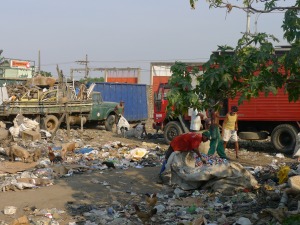 I get there in the mid afternoon, and the stench of mixed waste immediately invades my nostrils. A security guard comes to tell me that I am not allowed to go in. After a brief bureaucratic conversation with the yard manager, I’m informed that I need a special permit to visit the premises. Frustration kicks in. Now that I have made it to Rio, now that I have come this far, I cannot accept returning empty-handed. The security guard, meaning well, suggests I visit the slum right next to the yard instead, but he immediately regrets it. “You really shouldn’t go there, it’s too sinister.” Literally, that is the word he used. But I decide to ignore his advice and head for a small hut made of bare bricks and sticks that seems to serve as a tavern. I figure that this is where I can find people who work on the trash yard.
I get there in the mid afternoon, and the stench of mixed waste immediately invades my nostrils. A security guard comes to tell me that I am not allowed to go in. After a brief bureaucratic conversation with the yard manager, I’m informed that I need a special permit to visit the premises. Frustration kicks in. Now that I have made it to Rio, now that I have come this far, I cannot accept returning empty-handed. The security guard, meaning well, suggests I visit the slum right next to the yard instead, but he immediately regrets it. “You really shouldn’t go there, it’s too sinister.” Literally, that is the word he used. But I decide to ignore his advice and head for a small hut made of bare bricks and sticks that seems to serve as a tavern. I figure that this is where I can find people who work on the trash yard.
A young toddler, not more than three years old, approaches me with a curious smile. He starts grabbing my pockets, laughing and trying to play with my camera. He is followed by his dad, sporting a suspicious look. “E ai cara! What’re you up to?” I introduce myself, shake his hand and reply that I’m just curious about the place and would like to talk to people that make a living trash scavenging. At first, Fabinho is understandably cautious, not talking too much. We order beers, we chat for a bit and I tell him about my city, which makes his eyes wide with curiosity. Suddenly he just tells me: “Ai cara, I’ll show you everything you need! You just need to follow me.”
I decide to believe him, to award him the trust and 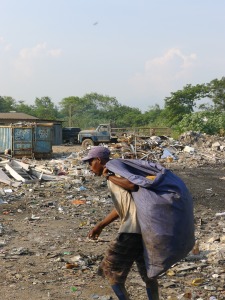 optimism I have gotten travelling by myself. Fabinho has been working here for 15 years. He used to be involved in “illegal businesses” which I decide not to ask about. “At least I’m not out on the streets, robbing people. Here you can make the basic. What it takes to survive. Not more, not less. But I’m not getting into trouble.” He taps me on the shoulder and shakes my hand once again, in a way to reassure himself. His calloused, hard hands have a strong grip that makes me look him straight in the eye and smile. We understand each other. We continue through the back streets, meandering around, talking to other “catadores.”
optimism I have gotten travelling by myself. Fabinho has been working here for 15 years. He used to be involved in “illegal businesses” which I decide not to ask about. “At least I’m not out on the streets, robbing people. Here you can make the basic. What it takes to survive. Not more, not less. But I’m not getting into trouble.” He taps me on the shoulder and shakes my hand once again, in a way to reassure himself. His calloused, hard hands have a strong grip that makes me look him straight in the eye and smile. We understand each other. We continue through the back streets, meandering around, talking to other “catadores.”
Then, we reach this yard where everybody is frantically busy, digging through the trash. Nearby, a pig is having a feast and a bunch of roosters get the scrapes. “In a few months, vai virar assado!” The pig continues eating, oblivious to the fact that it will find itself on the barbecue soon. We walk around and I talk to some of the other scavengers. What really strikes me is that these people are proud to keep their dignity. Proud to be making a legit living, based on a system where people are paid for each kilo of plastic, metal or cardboard they bring. In a city where easy money seems to be a temptation, working here is seen as something valid.
 I ask Fabinho if he feels like he was contributing to society in general. After all, he is responsible for a massive amount of recycled material every day. His answer is simple: “I think I am, but cara! That’s not why I do this! I can’t read, I can’t write… but I know about things! In the middle of this waste I can always survive… Just the other day, I found a cell phone and that gave me enough for a whole week! “
I ask Fabinho if he feels like he was contributing to society in general. After all, he is responsible for a massive amount of recycled material every day. His answer is simple: “I think I am, but cara! That’s not why I do this! I can’t read, I can’t write… but I know about things! In the middle of this waste I can always survive… Just the other day, I found a cell phone and that gave me enough for a whole week! “
That said, we go back to the tavern. We order pinga com mel, Brazilian sugarcane booze with honey, and we drink. After the first sip, Fabinho tells me: “Cara, I don’t do this to any gringos normally… But you came here and shook our hands, you played it cool…so, I showed you around.” I must look like a child, so wide is my smile that it begins at one ear and finishes at the other.
I can only thank him for the “honor,” for his priceless help and for lifting the curtain to a reality that I was a total stranger to. I return to the city still processing what I have seen and heard. And how a stranger like me was so welcomed to such a different reality, such a degree of poverty and such a will to survive. But, at the same time we were able to communicate and to treat each other as men. As human beings.

